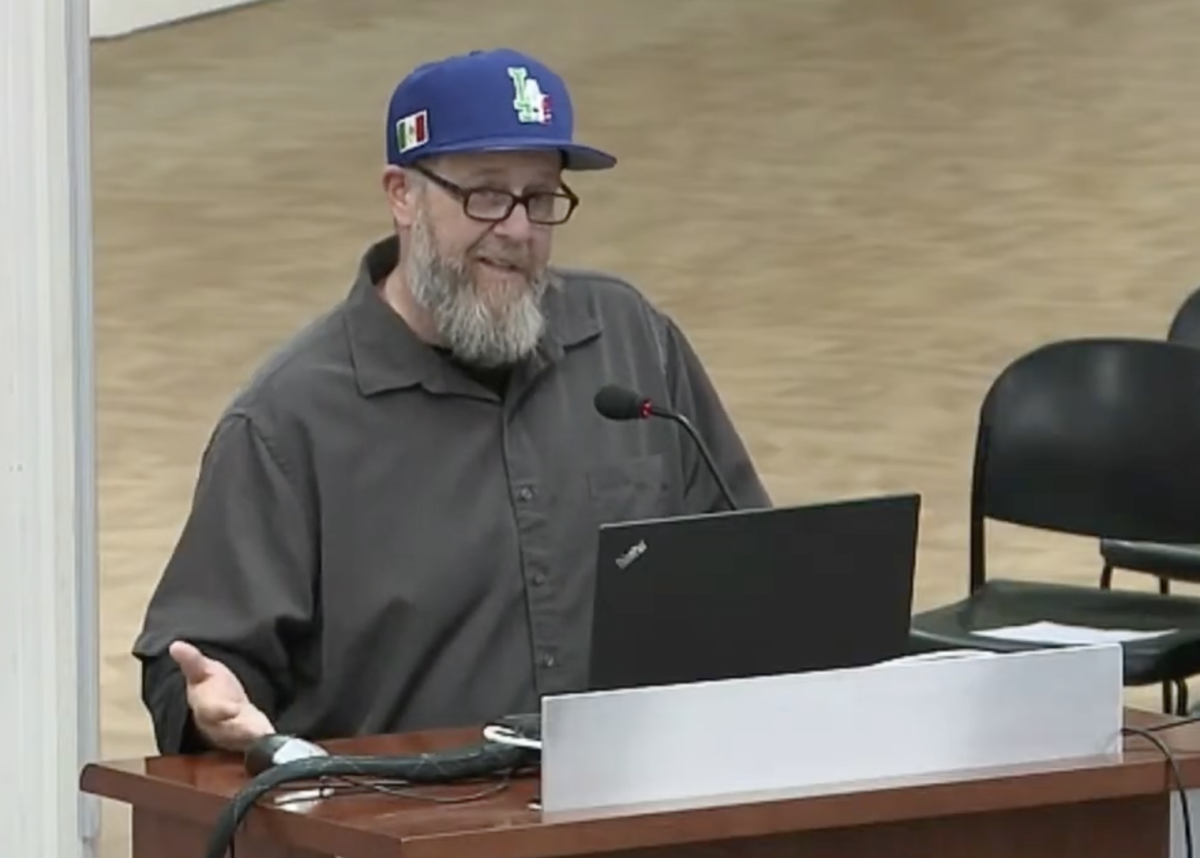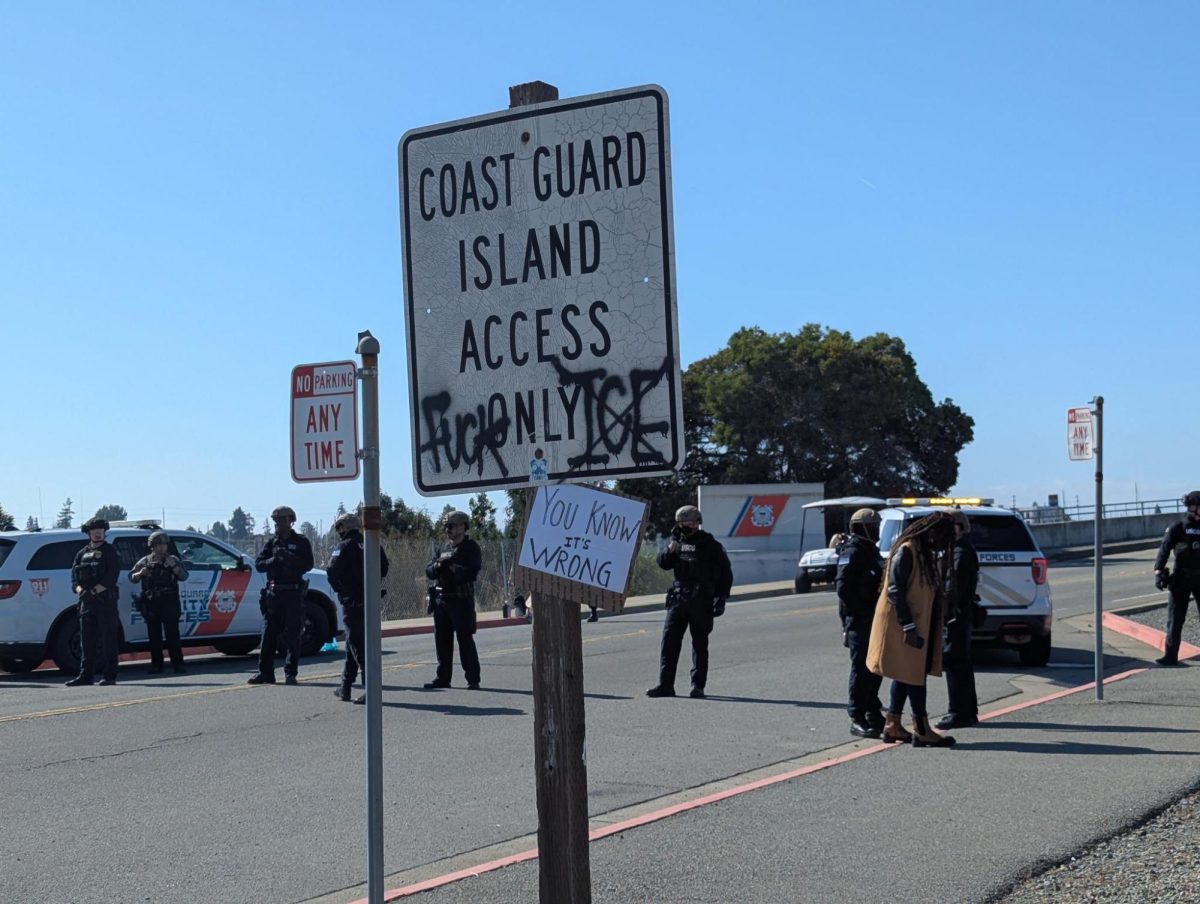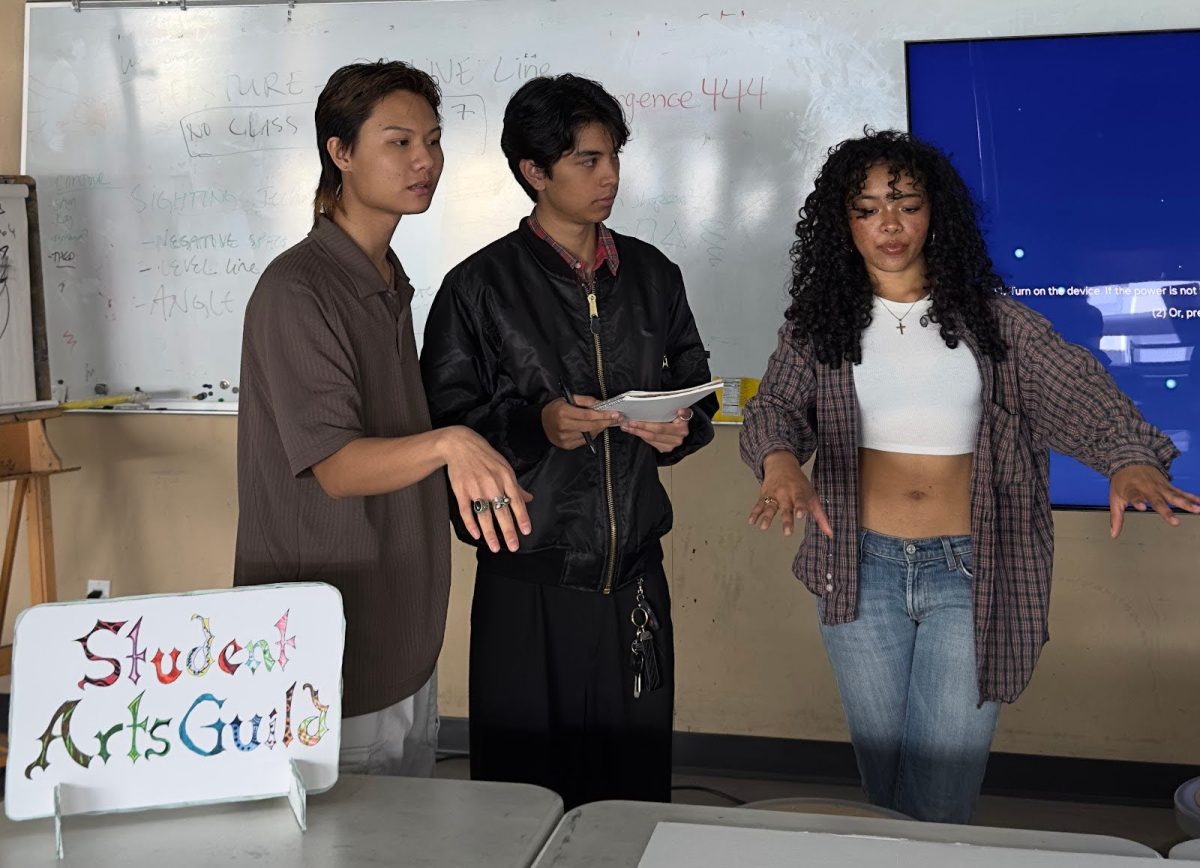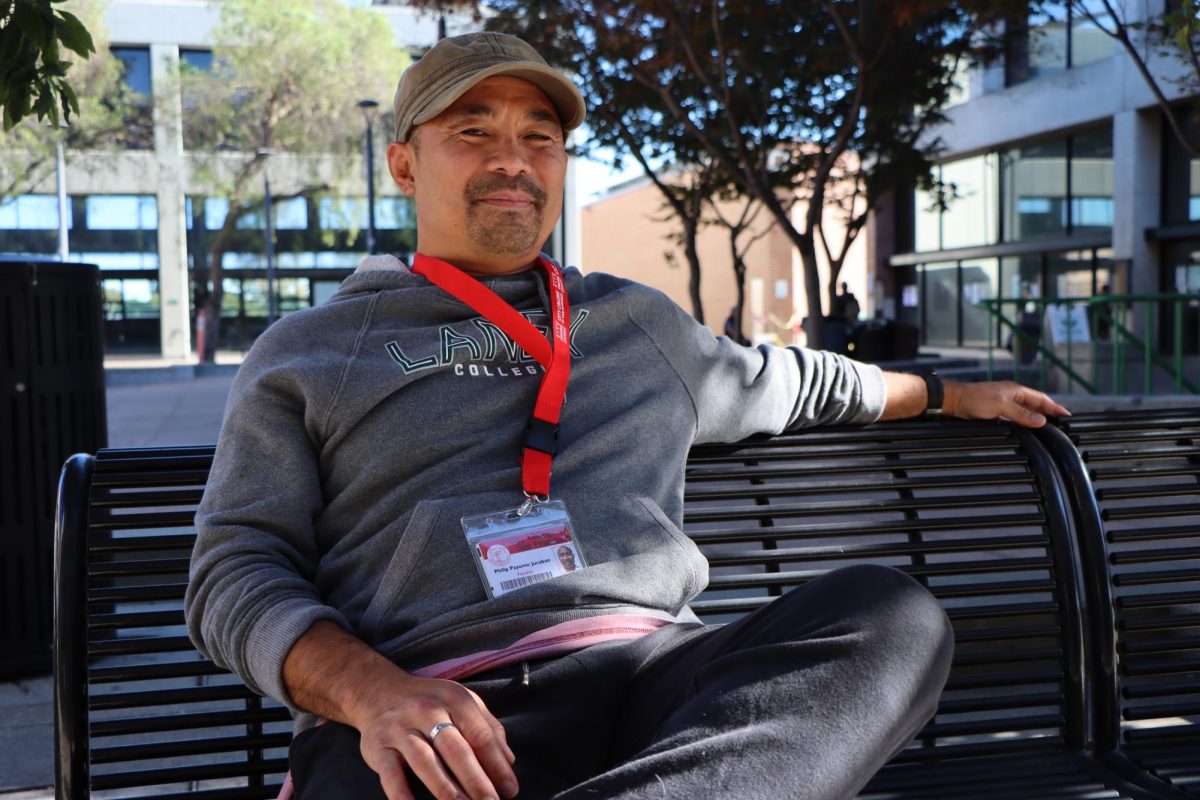A Citizen investigation found that, after receiving a direct order from the college president to cancel an on-campus security guard training “course” led by an unvetted security company, a College of Alameda faculty member promoted an off-campus training led by the same company – Absolute Private Protection & Security.
The original “free class” to obtain a “security guard card” was promoted through a Sept. 22 CoA student services newsletter. An attached flyer for the event claimed attendees would receive a “certificate to become a security guard” after a one-hour training.
The event was arranged by CoA counselor and Project Hope coordinator Robin “Bernard” Ward. Ward has not responded to requests via phone and email for an interview for this article.
First – what’s a “guard card?”
A “guard card” is a credential that private security officers must hold and keep current to do business in many states, including California.
The California Bureau of Security and Investigative Services (BSIS) is responsible for certifying private security officers and private security businesses in the state, as part of the state Department of Consumer Affairs.
To become a security guard in California, one must first receive BSIS-approved training on the legal powers and responsibilities private security guards possess, and how private security officers differ from law enforcement.
Aspiring security guards must “complete a course in the exercise of the power to arrest and the appropriate use of force as a condition for the issuance of the registration,” according to the bureau’s ‘Powers to Arrest and Appropriate Use of Force’ training handbook.
The handbook also states that the breadth of this mandatory training “shall be approximately eight hours in length.”
After receiving this training, hopefuls get a certificate of completion from the person or entity that trained them. Then, they must pass a background check and pay a $55 fee to file their guard card application with the bureau.
Guard card holders cannot legally work as independent contractors. They must be employed through a licensed company, such as a Private Patrol Operator (PPO).
According to a BSIS factsheet, Private Patrol Operators must maintain a valid PPO license number with the BSIS and designate a licensed “qualified manager” to handle day-to-day operations.
The first flyer
Following the student services newsletter, CoA faculty senate president Jennifer Fowler said that other members of faculty began to approach her with concerns about the promotional flyer for the guard card “class.”
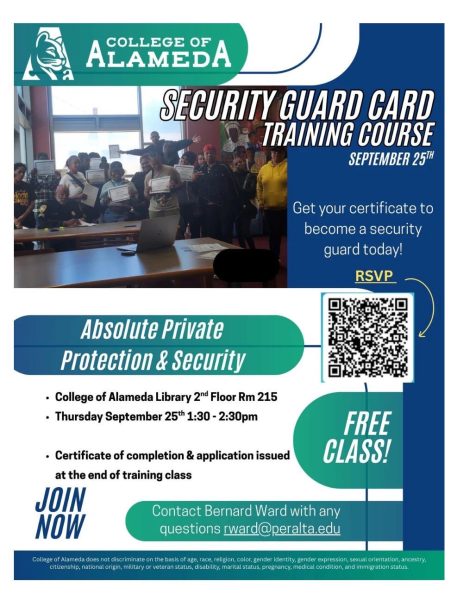
Some pointed out that the words on the flyer – “course,” “class” and “certificate” – could mislead students. “A course would be tied potentially to units that students are earning,” Fowler explained.
According to Fowler, any classes or certificates offered by the Peralta Colleges must be created, evaluated and approved by college faculty in a “queue of internal checks.” In most cases, curriculum goes through a further approval process through the state. It takes at least “a few months,” she said.
“Anything with the word or being advertised [as a] ‘class,’ ‘course’ [or] ‘certificate’ would catch the attention of a faculty member, if it was something that they weren’t familiar with in our college catalog or in curriculum discussions,” Fowler said. “It would be a concern because it would be completely outside of our local and state curriculum processes.”
The faculty raised another concern to college leadership: the credentials of the company named on the flyer, Absolute Private Protection & Security.
According to the California Secretary of State’s searchable online business license, Absolute Private Protection & Security’s LLC license has been suspended since Nov. 2018. It was initially filed in Dec. 2014.
At time of writing, the company’s standing with California’s Secretary of State and Franchise Tax Board is shown to be “not good.”
Clark Bowdry is named as the listed agent and chief executive officer of Absolute Private Protection & Security in documentation from the Secretary of State’s database. He is also listed as the qualified manager for Absolute Private Protection & Security on the BSIS license database.
According to the BSIS online database, Bowdry’s qualified manager license has been delinquent since July 31. Bowdry has received two citations from the BSIS for operating without valid licensing – one on April 11, 2022 and one on Sep. 10, 2025.
A second company called “Absolute Private Protection & Security 2” also appears in the Secretary of State’s database with a terminated business license, though it is associated with a “resigned or invalid agent.” The second company initially filed for its LLC in March 2019, but it has been inactive since March 2021.
The college’s vice president of student services, Mildred Lewis, said the scheduled training with Absolute Private Protection & Security was never intended to be a “class,” but rather a “workshop.”
“I profusely apologize,” Lewis told The Citizen in a phone call.
“I’ve been doing this for 25 years,” Lewis said. “[It’s the] first time something like this has happened in my career that I’ve seen.”
Lewis said that the marketing language on the flyer “absolutely stepped on the toes of curriculum and faculty.”
Lewis, who oversees Ward, said she raised the faculty’s concerns about the language on the flyer with Ward on Sep. 23. In an email to The Citizen, she wrote that Ward cancelled the training with the company immediately following their discussion.
She wrote that her support staff deactivated the QR code to register for the training that was displayed on the flyer on Sep. 24, the day before the scheduled training.
Lewis said she first learned of Absolute Private Protection & Security’s invalid licensing through conversations with concerned faculty that took place after Ward had told the company not to come to the college.
After The Citizen asked Lewis if students had been notified of the cancellation, Lewis said that Ward “still had a small gathering of students” to discuss “various career opportunities” on the day of the scheduled training. She did not indicate to The Citizen that she or Ward took any action to inform students of the cancellation in advance.
“The company did not come, and there was no workshop like it was promoted,” Lewis said. “My intention was to come and poke my head in. […] Unfortunately, I had a competing meeting at the time.”
The second flyer
About 16 students came to Room 215 at the CoA library on the afternoon of Sep. 25. Many said aloud that they were there looking for the guard card training.
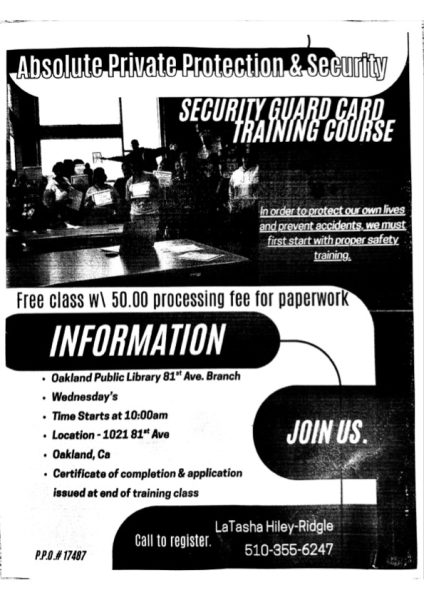
Ward told the room they would get started shortly. After a small delay, he told attendees that the event had been cancelled “due to a mix-up with the school.”
“I’m sorry, I tried my best to get it done, but they want to give me issues and problems,” he said.
Then, Ward passed each attendee a copy of a new flyer for a different security guard training, also hosted by Absolute Private Protection & Security.
The second flyer promoted a weekly off-campus “training course” at the 81st Ave branch of the Oakland Public Library (OPL). This time, although the off-campus training was still promoted as “free,” the flyer listed a “$50 processing fee.”
Ward did not share information about any other “career opportunities” at that time.
The following Wednesday, on Oct. 1, The Citizen visited the company’s off-campus guard card training at the 81st Ave public library.
In order to participate in the training, attendees were prompted to provide their personal information, including a Social Security number, on a registration form. This form listed cash, CashApp, and Apple Pay as payment methods for the processing fee.
This reporter declined to fill out the registration form.
Clark Bowdry leads the weekly security guard training at the Oakland Public Library, and would have led the Sep. 25 training at CoA.
Bowdry’s PPO license number, #17487, appears on the flyer for the weekly event.
In an Oct. 3 phone call with The Citizen, Bowdry said that his assistant, LaTasha Hiley-Ridgle, charges the $50 fee for her services filing paperwork on behalf of the company. The charge does not go towards the $55 BSIS guard card application filing fee.
Hiley-Ridgle told The Citizen on Oct. 1 that Social Security numbers were necessary to collect “for the paperwork.”
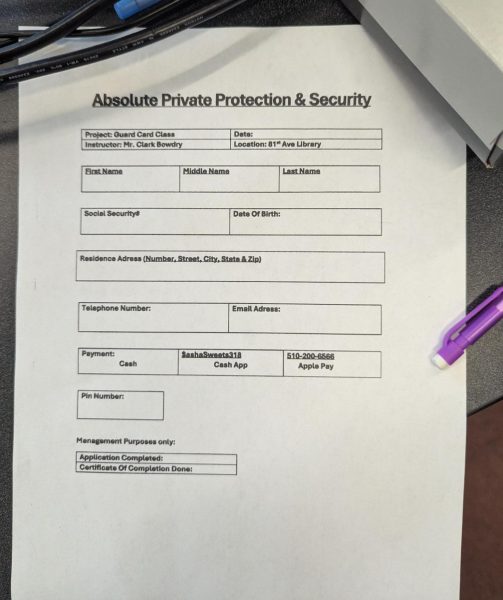
Enter Clark Bowdry
While Bowdry said that he doesn’t remember how he met Ward, Bowdry claimed the CoA counselor initially approached him to run one of his training “classes” at the college.
Bowdry estimates the value of his training between $200 and $300. He said he operates at a loss in order to conduct them for free – his assistant’s fee notwithstanding.
He called the college a “vehicle” to reach people “who need help” finding job opportunities.
“Sometimes when you’re trying to do good, you get discarded […] I’m not trying to scam anyone,” Bowdry said in a phone interview with The Citizen. “I’m just trying to help people.”
Bowdry claimed that he’s trained over 600 people at the 81st St OPL branch since the beginning of August.
He also claimed that he “found out” he can complete the 8-hour ‘Powers to Arrest’ and ‘Appropriate Use of Force’ training with attendees “from 10 [a.m.] to 4 [p.m.]” – a period of just six hours.
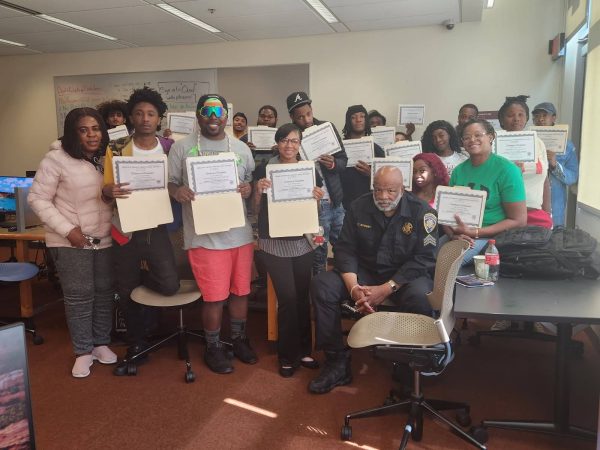
Bowdry acknowledged that his qualified manager license is invalid, but he claimed he doesn’t need it to operate.
“My PPO number is still valid,” he said.
According to Jonathan Morales, the manager of the Office of Public Affairs for the state Department of Consumer Affairs, “Clark Bowdry’s Qualified Manager (QM) license number […] has not been renewed yet and is delinquent. The QM license must be renewed to keep the PPO license valid.”
Bowdry did not respond to an email requesting further comment.
Was the class “cancelled?”
College president Melanie Dixon told The Citizen that she directed Lewis to cancel the training on Sept. 24 and “confirmed” it had been cancelled on the morning of Sept. 25.
Later that day, at 5:48 pm, Lewis sent an email apology to Fowler, faculty and department chairs for the “confusion” the initial on-campus training had caused.
“The listing was posted in error, and as a result, […] the event was cancelled,” Lewis wrote. “This workshop was shared prematurely without understanding the instructional protocols. I take responsibility for this oversight.”
Dixon said she was “taken aback” and “disappointed” to hear about the gathering on Sept. 25. The Citizen asked Dixon whether she considered this to be a “cancellation” as she had directed.
“It does not feel like one at all,” Dixon said.
Lewis said that though she knew Ward was meeting with students, she did not review the second flyer Ward had distributed.
“I didn’t know that he was passing it out and I haven’t seen that,” Lewis said.
She told The Citizen that she did not know how Bowdry and Ward knew each other.
In hindsight, Lewis said this experience would make her “pause” and work more closely with her team to vet outside organizations, “even if they have a professional relationship.”
“It reflects on the institution. It reflected on student services,” she said. “I’ll be looking to have our team [take] time to look certain things up so that we don’t carry that responsibility.”

